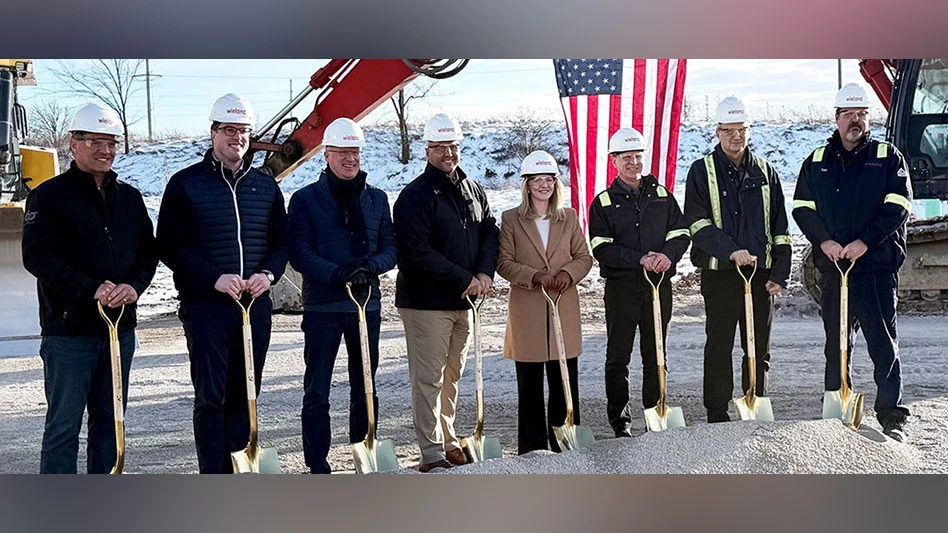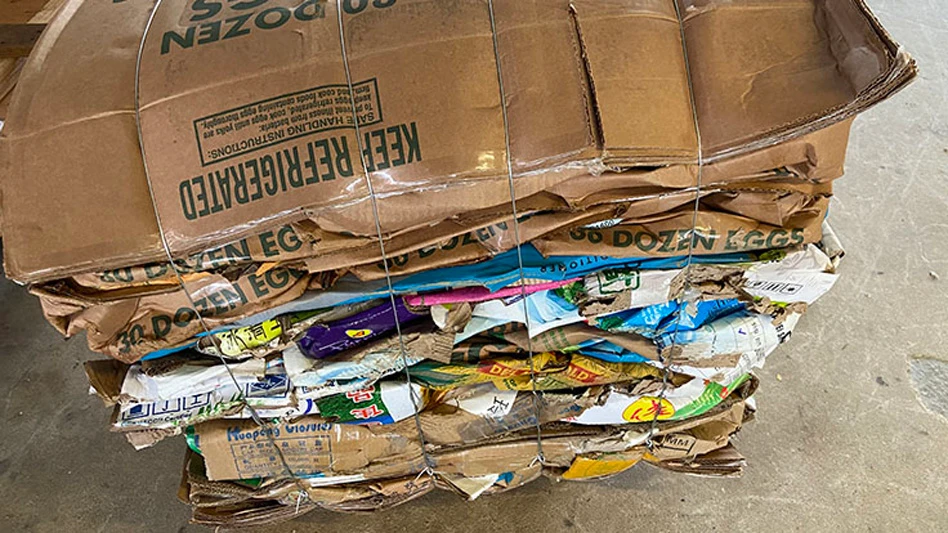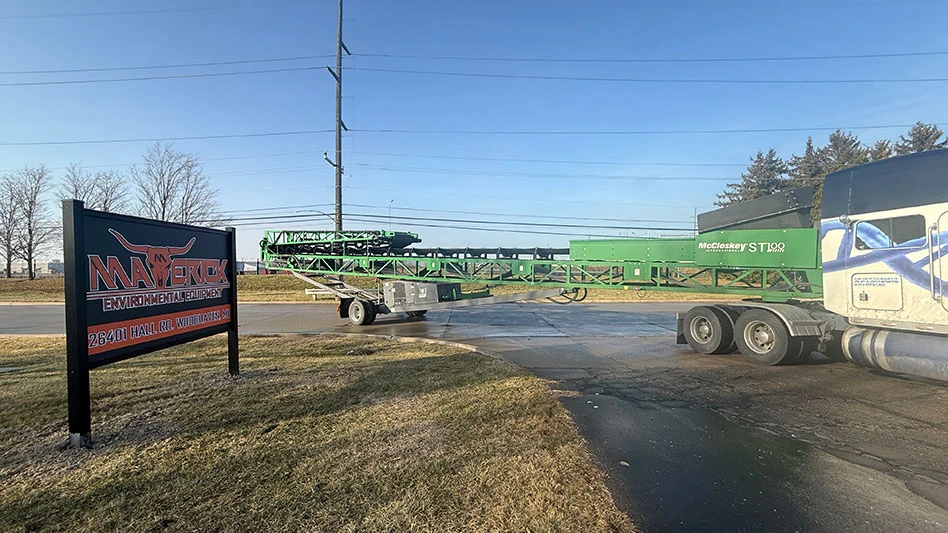
Recycling Today archives
A proclamation published by the White House says a 50 percent tariff rate on imported steel and aluminum took effect midnight Wednesday, June 4.
President Donald Trump had indicated the tariff increases were imminent during a speech he made near Pittsburgh in late May announcing an (as yet unfinalized) merger agreement between Nippon Steel Corp. and United States Steel Corp. that would have U.S. government involvement.
“I have determined that it is necessary and appropriate to increase the tariff rate for imports of steel articles and derivative steel articles and aluminum articles and derivative aluminum articles from 25 percent ad valorem to 50 percent ad valorem,” the proclamation reads in part.
The roughly 2,000-word proclamation singles out one country, the United Kingdom, as being exempt from the increase, though steel and aluminum imported from that nation will retain a 25 percent tariff rate. The U.K. and the U.S. reached a bilateral trade agreement May 8.
As has been the case with earlier tariff announcements, steel producers have been more supportive of the trade restriction than some participants in the aluminum supply chain.
“AISI welcomes President Trump’s announcement today that he is increasing steel tariffs to 50 percent,” says Kevin Dempsey, president and CEO of the Washington-based American Iron and Steel Institute (AISI). “Led by China, global steel overcapacity and production continue to grow, even as overall global steel demand is being impacted by the sharp downturn in the Chinese construction sector."
For several years, steelmakers in China have produced more than half the world’s steel while housing about 17 percent of the global population.
U.S. Census Bureau statistics published by the AISI seem to indicate only a small percentage of China’s exported steel makes it to the U.S., however. In the first four months of this year, the 136,000 tons of Chinese steel shipped to the U.S. was 12th in the list of exporting countries and represented just 1.3 percent of the total.
The Virginia-based Aluminum Association, while expressing support for import protection, also has indicated tariffs cannot instantly add domestic production to the U.S. aluminum supply chain.
“Even if we could flip a switch and turn on every idled aluminum smelter tomorrow, the U.S. industry cannot currently produce nearly enough metal to make the products that Americans rely upon," Aluminum Association President and CEO Charles Johnson said in mid-May.
Referring to a white paper released by the association, Johnson added, “This new research shows us that greater self-sufficiency will require an all-of-the-above approach to energy, trade and recycling policy to ensure that U.S. manufacturers have abundant, affordable metal.”
A trade group representing some aluminum and steel buyers and users is less supportive of the 50 percent tariff announcement.
Can Manufacturers Institute (CMI) President Robert Budway says his Washington-based trade group and its members “strongly oppose" any action that would raise steel tariffs to 50 percent.
“Doubling the steel tariff will further increase the cost of canned goods at the grocery store," Budway says. "This cost is levied upon millions of American families relying on canned foods picked and packed by U.S. farmers and can makers.
“A series of unfortunate decisions over the past eight years by domestic tin mill steel producers led to dramatic cuts that have decreased U.S. production of the specialized steel used in can making by 75 percent. As a result, domestic can makers and canned food producers now import nearly 80 percent of tin mill steel from trade allies. Doubling steel tariffs will inflate domestic canned food prices.”
“Aluminum tariffs hit brewers particularly hard due to the reliance on aluminum cans to package most beer (approximately 76 percent of all U.S. packaged beer comes in cans),” Brewers Association Vice President of Government Affairs Marc Sorini says in a June 3 post on that Colorado-based organization’s website.
“While small brewers typically source cans domestically from domestically rolled can sheet, a portion of the raw aluminum used to make U.S. can sheet is imported, mostly from Canada. Aluminum prices (as established by the Midwest Premium) already have increased since the president’s announcement of increasing the tariff on aluminum.”
Primary aluminum producers in the U.S. and the association that represents them have voiced their support for the increased tariffs.
The American Primary Aluminum Association (APAA), Washington, which hosts the Aluminum Now website and campaign, has applauded the "strong and decisive action" Trump has taken by raising the tariff rate on foreign aluminum imports to 50 percent.
“We applaud President Trump’s historic announcement that he will impose a 50 percent tariff to stop the flood of foreign aluminum imports,” APAA President Mark Duffy says. “For decades, subsidized foreign producers have hollowed out domestic aluminum manufacturing. Under President Donald Trump, we finally have a strong leader who is fighting to rebuild domestic manufacturing and protect thousands of American aluminum jobs.”
Century Aluminum Co., an integrated producer of bauxite, alumina and primary aluminum products that is headquartered in Chicago, also has voiced its support for the higher tariff on aluminum imports, noting that with the support of Trump’s policies, Century Aluminum has announced that it will build the first new aluminum smelter to be built in the U.S. in 50 years and double domestic production.
“President Trump has stood firm in his support of U.S. aluminum production and American jobs,” Century Aluminum President and CEO Jesse Gary says. “We thank President Trump for again putting America first and supporting the resurgence of the domestic aluminum industry.”
This article was updated June 4 to add comments from the primary aluminum industry.
Latest from Recycling Today
- Cyclic Materials announces plans for South Carolina campus
- WM reports revenue, earnings growth in Q4 and full-year 2025
- Solarcycle’s Cedartown, Georgia, recycling facility opens
- Stadler equips Spanish MRF
- SSAB finishes 2025 with decreased revenue
- Vecoplan appoints CFO
- Aurubis raises full-year forecast
- Levitated Metals adds LIBS sorting technology





